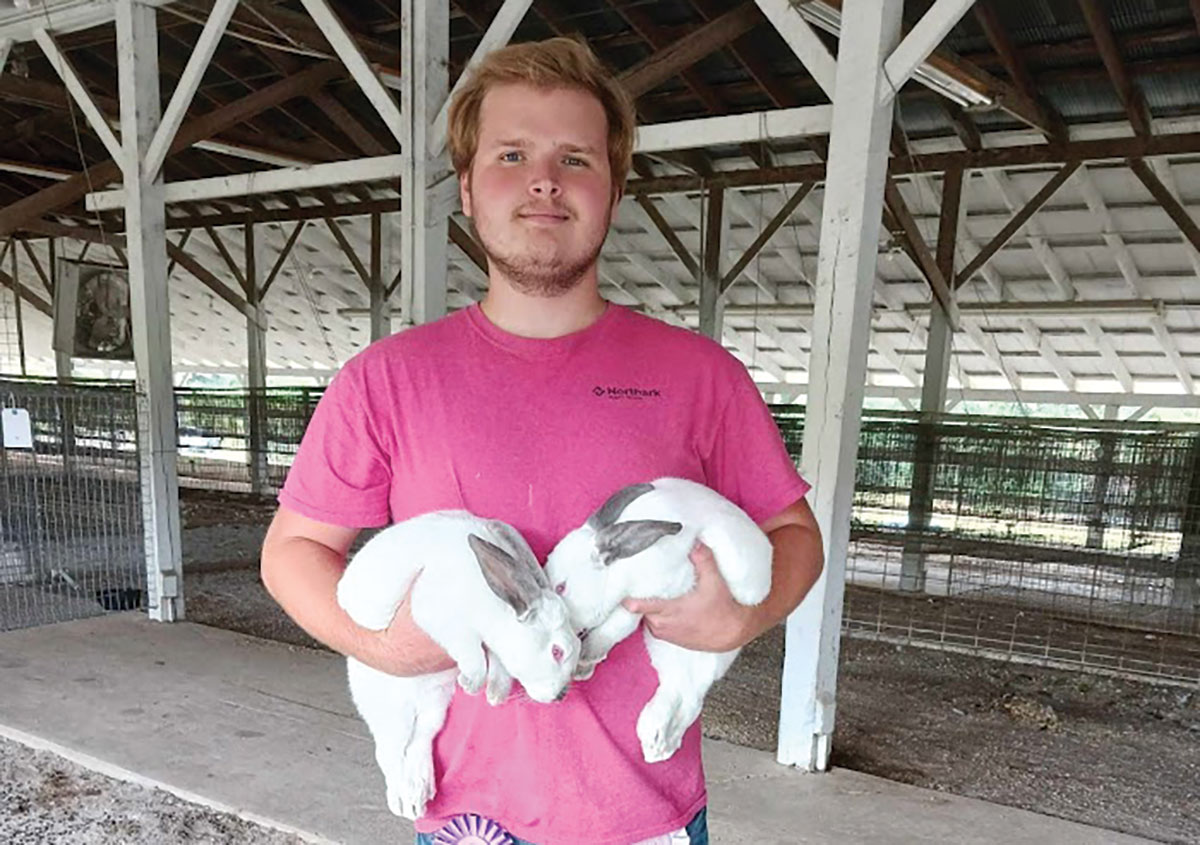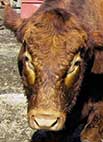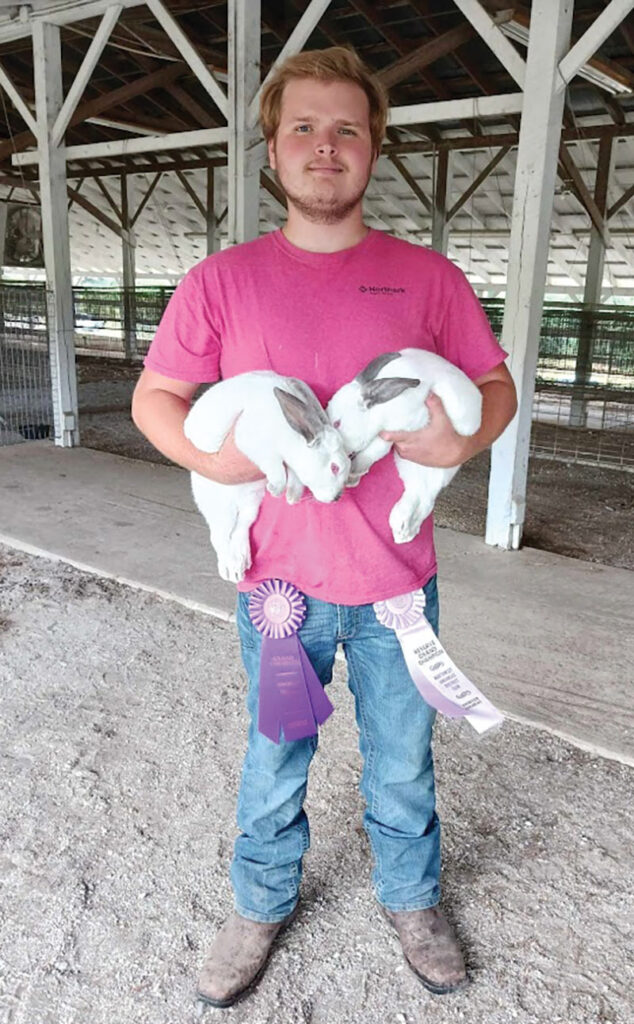
Young producer Beau Smith operates a multi-species farm
DEER, ARK. – “I do it all myself,” Beau Smith said of his farming operation. The young farmer has heritage-breed chickens, purebred Wagyu, rabbits and “Ozark Mountain cattle.”
From the tiny town of Deer, Ark., Beau grew up farming from the beginning. His love for everything in the livestock industry began on his family farm at only 2 years old.
“Growing up on a farm, we had our poultry, pigs and cattle, the usual farming stuff. But thanks to my neighbor up the hill from my grandparents, I earned the nickname Chicken George,” Beau said with a chuckle. “I would go up there to help out with his chickens. He bred and raised Rhode Island Reds, a heritage breed with around 400 chickens, goats and many animals.”
Beau started with poultry when he learned about Jersey Giants from his great-grandma. She told him a story about giant Turkey-sized chickens. He had been watching P.Allen Smith with his other grandma before he knew P. Allen had a poultryville. Beau bought a trio of Jersey Giants, and became addicted to exhibition poultry. He showed in 4-H, and county and district shows. The Jersey Giants engulfed the egg side of it and began hatching out several hundred chicks a year.
Beau eventually joined 4-H and purchased his first flock of White Leghorns. He quickly began his first egg business, selling to local churches and donating eggs.
During high school, Beau became interested in the genetics aspect of livestock, which eventually led to him owning 100 percent Wagyu and Red Devon Cattle. He also became interested in rabbits.
“I had a friend with some rabbits, so I bought a couple,” Beau recalled. “They were New Zealand-breed rabbits. I didn’t plan to show them, initially, but I ended up taking one of them to a show. My rabbit won best of breed and got nominated for best of show.”
Smith Mountain Farm currently has 20 head of Wagyu cattle and a few head of Red Devons.
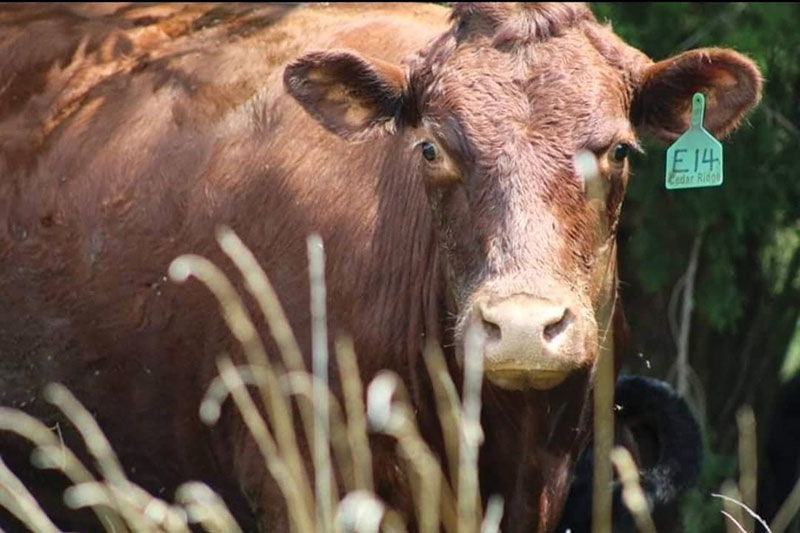
“Our cows are 100 percent grass-fed; occasionally, we give them cubes.”
Calves are split it into 50/50 grain-fed and grass-fed groups.
“We will do the 28-month group time on full grain, with low vitamin A. That will give you what customers want out of the Wagyu.”
He also has 50 “critically endangered” White Face Spanish chickens. His chickens are housed in chicken tractors and have daily access to fresh pasture.
As for rabbits, he keeps around 200 Harlequin and Californian does.
Like all breeding stock, the nutritional requirements for rabbits change with the seasons.
“It 18 percent [protein] in the summer, and we do 20 percent in the winter to help boost them,” Beau said.
Marketing so many different types of animals may seem like a daunting task. But Beau has made that simple through many implementations and techniques. His animals are advertised on Facebook and through word-of-mouth, especially his cattle and rabbits.
“The other big one is that people can go on Facebook and see your breeding stock of the animals they are interested in. You can view the pedigree of the animals,” Beau said. “They have access to all the information. They can contact you if interested.”
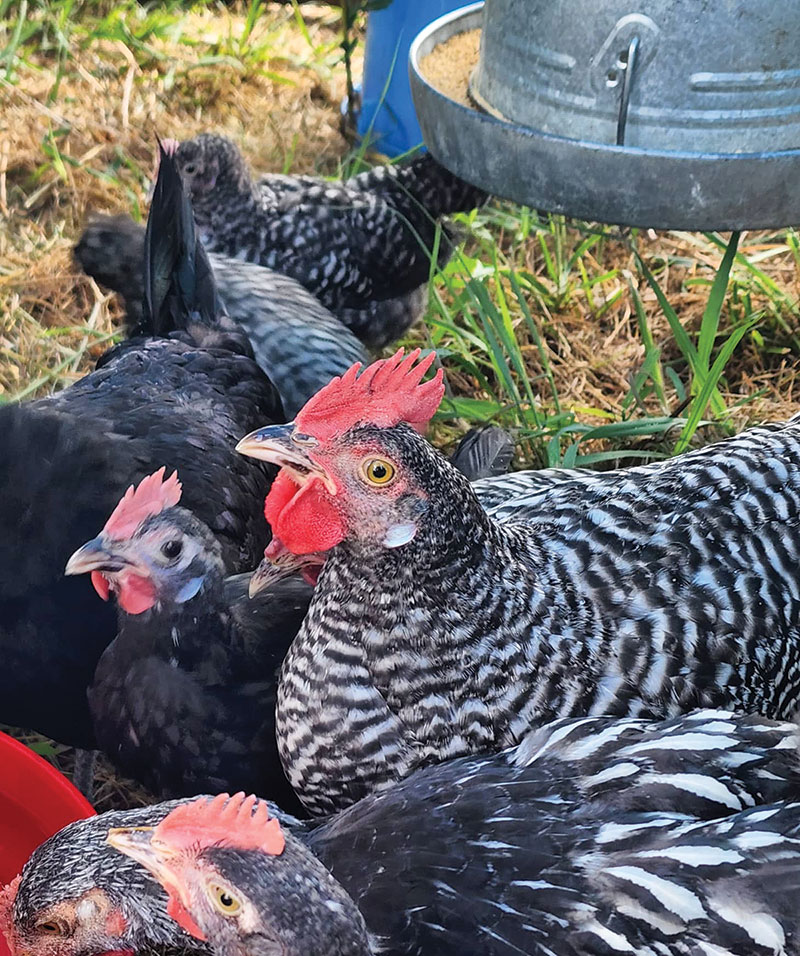
In addition to direct meat sales to neighbors, friends, and other people in the community, Beau also sells seedstock.
“Breeding or seed stock only makes up about 2 percent of what we produce,” he explained. “I am very hard on what is used for breeding, especially if I’m going to put my name on it.”
“I don’t want second-rate genetics going anywhere. Of that 2 percent, I usually cut, I will keep my top 1 percent and sell my second percentile birds. They are still excellent birds. But there will be one with something I like more than the others. The other nine out of, let’s say, 100 and go to breeding homes. The other 90 get eaten.
“I care about where particular animals go because I don’t know what ends with them. I want to see those genetics utilized, and I want to see them having an impact. So, even with the breeding quality of animals, I don’t want them randomly spread out. I like to be selective to ensure these go to homes that will utilize and put them to use, even if it produces meat stock. I know they are somewhere doing their job.”
With so many small animals, it could be come difficult to keep tract of who is who, but Beau has a system.
“We have leg bands and toe punches to keep up with which chicken came from what breeding pen and which breeding clan they came from.”
Beau also produces show-quality birds for youth exhibitors.
Beau keeps only 1 percent of the bucks produced on the farm.
“Selecting the male is critical. I currently have around 20 bucks,” he said.” I get bucks with genetic traits here and there, and then I’ve got my lineup of five that service most of the does.”
Beau takes many preventive measures to insure the animals remain healthy, especially biosecurity.
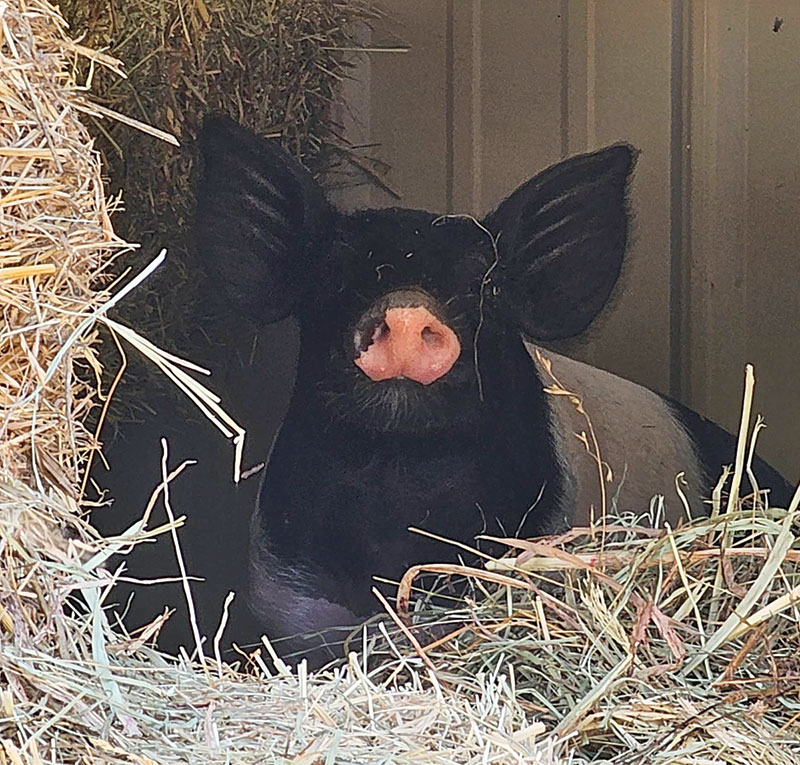
“The main two factors are isolation and rotation of rotatable animals,” he explained, adding that poultry are not are vaccinated, but cattle are. “No on-farm visitors are allowed without proper protocol, such as being away from their birds for a certain amount of days, wearing new/fresh clothes, and wearing new/uncontaminated shoes. It is the same with the cattle. We also maintain tight fences to keep our cows from our neighbor’s cows.”
Rotation is the key to managing parasites and pathogens in Beau’s herds.
“Herds move every day to the fresh pasture. My animals may not see the old pasture for months. It cuts down on risks.”
Both isolation and rotation protocols are followed.
“New animals get isolated and on hay for 30 to 60 days. Sometimes, 30 will prove sufficient. With new animals, we give them antibiotics immediately. We hope to be a closed system on antibiotics eventually.”
Other isolation protocols get carried out when at shows.
“We have pens far from everybody else,” Beau said. “They are the last to visit for the day, so we are not cross-contaminating. I will change my clothes, wash them immediately, sanitize head to toe, dip my feet, and shower.”
Selling the chicken and rabbit manure byproducts is a large part of Beau’s operation.

